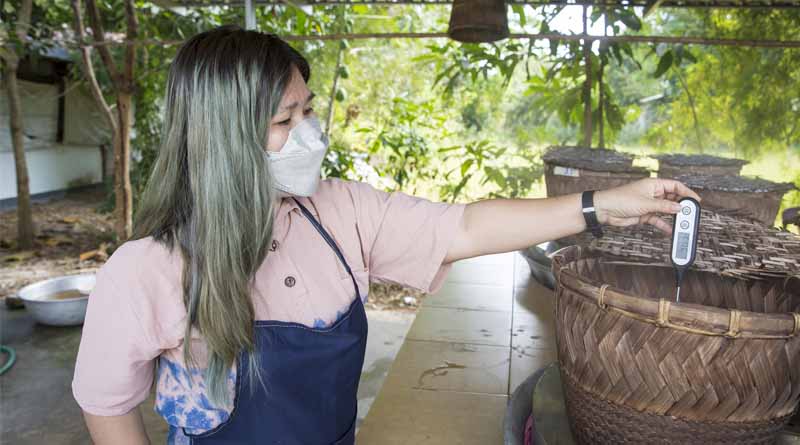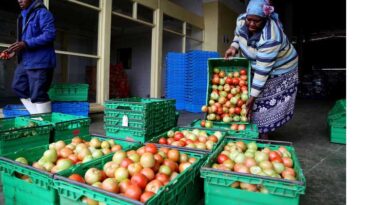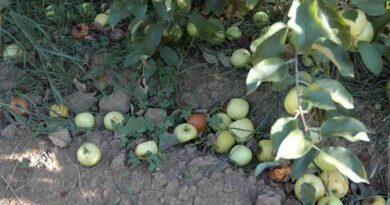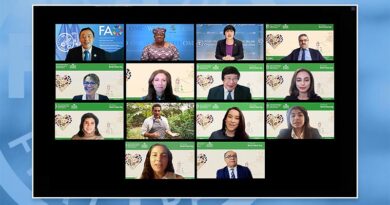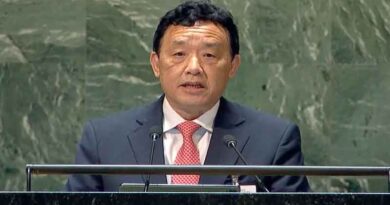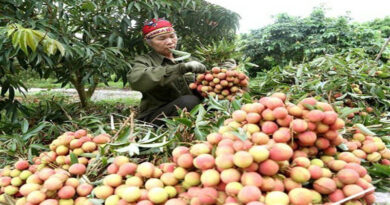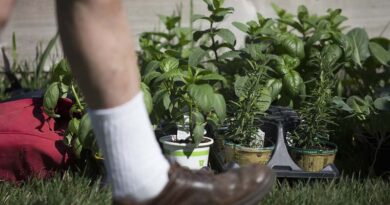International Day of Awareness of Food Loss and Waste: FAO calls for circular model in agrifood systems
30 September 2023, Rome: Reducing food loss and waste represents a triple win opportunity with immediate positive impact on food security, climate benefits, and increased availability of nutritious food while improving the overall sustainability of agrifood systems, QU Dongyu, Director-General of the Food and Agriculture Organization of the United Nations (FAO) said today.
Speaking at an event to mark the International Day of Awareness of Food Loss and Waste, Qu described the current ways in which our foods and fibres are produced, consumed and distributed as needing urgent change “to ensure food security and accessible healthy diets for all.” The Director-General emphasized it was time to stop listing the challenges and to move to concrete actions. He added that business as usual was no longer an option, but this could only be changed if all partners and players made a concerted effort to implement identified actions.
Currently more than 13 percent of food produced globally is lost in the supply chain from after harvest and prior to retail, and a further 17 percent is wasted in households, in food services and in retail, according to FAO and UN Environment Programme (UNEP) statistics.
At the same time, millions of people across the world are malnourished, and the world is off course to achieve most globally agreed nutrition targets. Healthy diets are an essential part of addressing this issue, yet more than 3.1 billion people were unable to afford a healthy diet in 2021.
Shift to circular model
Instead of the current linear “take-make-discard” model, the FAO Director-General said global agrifood systems “must be transformed to be more efficient, more inclusive, more resilient and more sustainable.”
FAO argues that the priorities must be to prevent and reduce food loss and waste at source – in production, handling, processing, packaging, storage, and consumption; rescue, recover and redistribute surplus or unsold food that is safe and suitable for consumption and recycle and upcycle or repurpose by-products to keep them out of landfills.
In a message read on his behalf, Pope Francis said: “The food that we throw into the trash is torn from the hands of those who lack it and who also have the right to food.” UN Deputy Secretary -General Amina Mohammed said in a video message: “We need profound changes in the way we produce, handle, store, process and consume food if we are serious in tackling food waste.” Elizabeth Mrema, UNEP’s Deputy Executive Director, called on “governments, companies, institutions and individuals to align with international goals to reduce food loss and waste.”
Other participants with messages underlining the need for action on Food Loss and Waste included: The President of the International Fund for Agricultural Development, Alvaro Lario; the Humanitarian and Development Programme Director of the World Food Programme, David Kaatrud; the Ministers of Foreign Affairs of Andorra and San Marino, Imma Tor Faus and Luca Beccari, as well as Leyla Fathallah, UNEP Advocate on Food Waste for West Asia and Diarmuid Gavin, FAO National Goodwill Ambassador for Ireland.
Agrifood systems degrade land
FAO has warned that our current agrifood systems degrade agricultural land, contribute to greenhouse gas emissions and loss of biodiversity and consume groundwater.
Reducing food loss and waste is central in the transformation of agrifood systems by increasing the availability of food, contributing to food security, healthy diets, building resilience and reducing greenhouse gas emissions.
Qu described tackling the problem of food loss and waste as a ”win-win for people and for planet”.
Also Read: More Power. More Intelligence. New Holland presents the new T7.340 HD with PLM Intelligence
(For Latest Agriculture News & Updates, follow Krishak Jagat on Google News)

